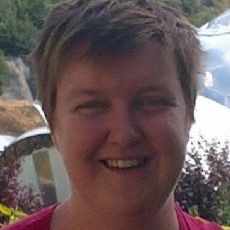In this week’s blog Lucy Kelsall-Knight (Associate Professor Children’s Nursing at the University of Birmingham) talk about Sexual and/or gender minority parents accessing healthcare for their children.
Family dynamics have changed over the last 20 years in the United Kingdom (UK) and it is now more common for parents to identify as lesbian, gay, bisexual, transgender or queer (LGBTQ) [1,2]. Whilst there is no data regarding the total number of same-gender parents in the UK, in 2023 one in five children in England were adopted by same- gender couples [3]. There is a lot of research available regarding LGBTQ people’s experiences of healthcare, however there is very little regarding LGBTQ parents’ experiences of accessing healthcare services for their children [4]. Of the information that is available the narrative is consistent in detailing that healthcare is heteronormative. This means that a heterosexual relationship is seen as the ‘default’ or ‘normal’ relationship and, therefore, other relationships are not privileged and are seen as different and potentially ‘not normal.
Sadly, it is not uncommon in children’s healthcare for health care professionals to ask same-gender parents the whereabouts of the ‘missing’ mother or father [5]. Often there is no imagery on the walls or in patient leaflets that reflects the child’s family dynamic, which may make children and their families feel as if they don’t exist, or are not recognised within healthcare. As the imagery and the forms in healthcare settings can appear to be heteronormative in nature, the behaviours of healthcare professionals could be seen to be endorsing them. How people ‘see’ a family may be dependent upon their own experiences and understanding of the term family. This is applicable to healthcare professionals as well. However, if any microaggression or discrimination is encountered then it must be acted upon. It is not acceptable, or lawful, for sexual and/or gender minority families to encounter heteronormative or gendernormative discrimination in healthcare. If children and their families encounter this type of behaviour it has the potential to be harmful to mental well-being, sense of self and family identity. It is vital that healthcare policy and professionals reform images, paperwork and language that is used so that children can remain at the centre of their healthcare. This will ensure that family centred care can be practiced and sexual and gender-minority parented families can feel included and seen.
So how can we ‘get it right’ for sexual and gender-minority parented families?
All healthcare professionals should receive training to ensure that they are aware of the diversity of the population in which they practice; the importance of appropriate terminology and families seeing positive representation of themselves in healthcare settings. In the UK we are a long way on from the arrival of the Equality Act [6] and the legal acknowledgement of sexual minority and gender minority relationships and whilst we still have a way to go to ensure inclusion, we are getting there. But like many situations in nursing, we can reflect on our actions and omissions, advocate for the people we work with and care for and enhance the experience for others in the future.
References
1 Mellish L, Jennings S, Tasker F. (2013) Gay, Lesbian and Heterosexual Adoptive Families: Family relationships, child adjustment and adopters’ experiences. London: BAAF.
2 Golombok S. (2015) Modern families: parents and children in new family forms. Cambridge: Cambridge University Press
3 Department for Education. (2023) Children looked after in England including adoptions. London: DfE
4 Kelsall-Knight L (2021) Qualitative exploration of lesbian parents’ experiences of accessing healthcare for their adopted children in England. BMJ Open. 11, e053710.doi: 10.1136/bmjopen-2021-053710, available at: https://bmjopen.bmj.com/content/bmjopen/11/10/e053710.full.pdf [accessed 31/5/24]
5 Appelgren Engström H, Häggström-Nordin E, Borneskog C, et al. (2019) Mothers in same-sex relationships-Striving for equal parenthood: a grounded theory study. J Clin Nurs;28:3700–9, available at: https://onlinelibrary.wiley.com/doi/10.1111/jocn.14971 [accessed 31/5/24]
6 Equality Act 2010 c.15, available at: https://www.legislation.gov.uk/ukpga/2010/15/contents [accessed 31/5/24]
Lucy Kelsall-Knight @LKelsallKnight is an Associate Professor Children’s Nursing at the University of Birmingham
